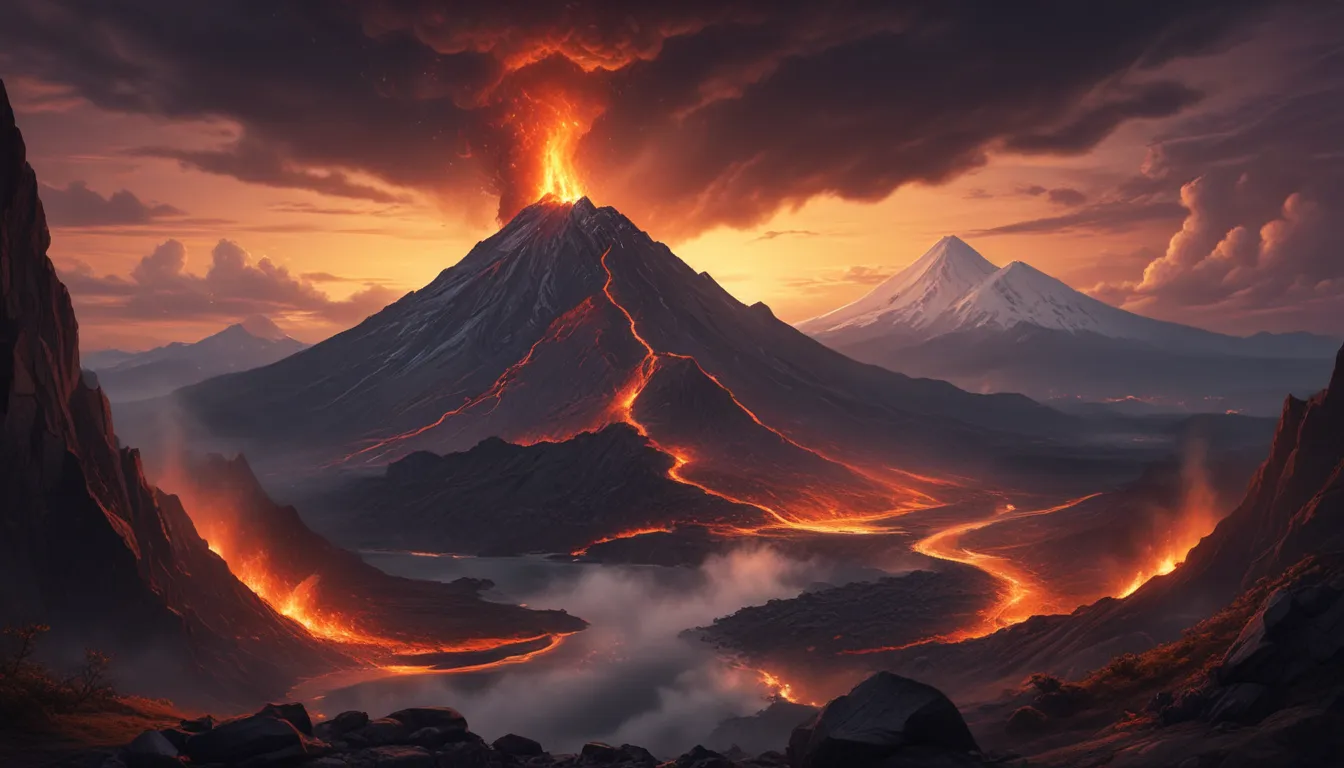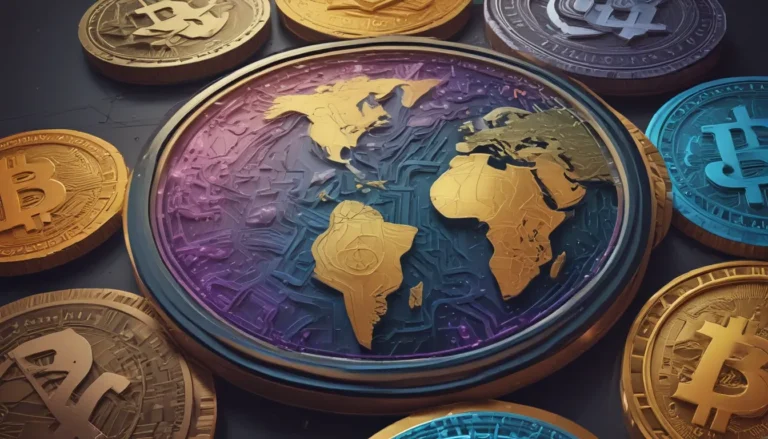A Note About Images: The images used in our articles are for illustration purposes only and may not exactly match the content. They are meant to engage readers, but the text should be relied upon for accurate information.
Are you fascinated by the fiery mysteries of volcanoes and the scientists who study them? Volcanologists are the adventurous individuals who delve deep into the heart of these geological wonders to unravel their secrets. In this article, we’ll take a closer look at the world of volcanologists and uncover 15 captivating facts about these fearless researchers. From their fieldwork adventures to their contributions to disaster response efforts, we’ll explore the captivating realm of volcanology and gain a deeper understanding of the remarkable individuals who dedicate their lives to studying these awe-inspiring natural phenomena.
Key Takeaways
- Volcanologists study volcanoes, analyze rocks and gases, and help keep communities safe from eruptions by monitoring and educating the public.
- By researching Earth’s volcanoes and even those on other planets, volcanologists advance our understanding of geological processes and contribute to disaster response and recovery efforts.
1. Volcanologists Study Volcanoes and Volcanic Phenomena
Volcanologists are scientists who specialize in the study of volcanoes, volcanic eruptions, and related phenomena. They aim to understand the processes that lead to volcanic activity and the impacts of eruptions on the environment and society.
2. Analyzing Volcanic Rocks and Gases
Volcanologists dive deep into the composition of volcanic rocks and gases to gain insights into the behavior of volcanoes. By studying these materials, they can make predictions about potential eruptions and understand the underlying processes.
3. Utilizing Specialized Equipment for Monitoring
Using advanced equipment such as seismographs, gas analyzers, and thermal imaging cameras, volcanologists monitor volcanic activity. This technology allows them to track changes within volcanoes and assess potential hazards, contributing to early warning systems.
4. Assessing Volcanic Hazards and Risks
Volcanologists play a crucial role in assessing volcanic hazards and risks to mitigate potential dangers to surrounding communities. Understanding the behavior of various types of volcanoes enables them to develop strategies for risk reduction and disaster management.
5. Conducting Field Research in Volcanic Regions
Fieldwork is an essential part of a volcanologist’s job, as they gather data and samples in volcanic regions to enhance their understanding of volcanic processes. This hands-on approach allows them to directly observe volcanic phenomena and collect valuable information.
6. Collaborating with Other Experts
Volcanologists work alongside geologists, geophysicists, meteorologists, and emergency management specialists to comprehensively study volcanic activity and its impacts. This interdisciplinary collaboration enhances their research and analysis capabilities.
7. Contributing to Early Warning Systems
Through data analysis and research, volcanologists contribute to the development of early warning mechanisms for volcanic activity. These systems play a vital role in alerting communities to potential volcanic threats and ensuring their safety.
8. Exploring the Impact on the Environment
Studying the environmental impact of volcanic activity allows volcanologists to understand its effects on air quality, climate, and ecosystems. This knowledge is essential for developing strategies to mitigate the environmental impact of eruptions.
9. Investigating Historical Eruptions
By studying past volcanic eruptions, volcanologists gain insights into specific volcanoes’ behavior and the long-term impacts of eruptions. This historical perspective is valuable for assessing future risks and understanding volcanic patterns.
10. Venturing Beyond Earth
Some volcanologists extend their research to include extraterrestrial volcanic activity, exploring volcanoes on other planets such as Mars and Venus. This comparative study offers valuable insights into planetary geology and potential extraterrestrial phenomena.
11. Analyzing Tectonic Movements
Volcanologists examine the relationship between volcanic activity and tectonic plate movements, shedding light on the geological processes that contribute to volcanic eruptions. This research contributes to a deeper understanding of volcanic dynamics.
12. Supporting Disaster Response Efforts
After volcanic eruptions, volcanologists play a vital role in supporting disaster response and recovery efforts. Their expertise helps assess damage, predict future activity, and guide recovery initiatives to protect lives and infrastructure.
13. Simulating Volcanic Processes in Laboratories
Laboratory experiments are used by volcanologists to simulate volcanic processes and gain a better understanding of magma behavior, gas emissions, and volcanic ash. These experiments provide valuable data for studying volcanic dynamics.
14. Advancing Geological Knowledge
Through their research and discoveries, volcanologists contribute to the advancement of geological and earth science knowledge. Their work enhances our understanding of volcanic processes, geological hazards, and the dynamic nature of the Earth’s crust.
15. Fostering Safety and Well-Being
Volcanologists play a critical role in advancing our understanding of volcanic activity to ensure the safety and well-being of communities worldwide. Their expertise in monitoring, predicting, and mitigating volcanic hazards is essential for protecting lives and property in the face of volcanic events.
Conclusion
The field of volcanology continues to evolve, thanks to the dedication of volcanologists who unravel the mysteries of volcanic phenomena. By studying these awe-inspiring natural wonders, these scientists contribute invaluable insights that enhance our preparedness and resilience in the face of volcanic activity. Their efforts to monitor, predict, and mitigate volcanic hazards are essential for safeguarding communities and the environment. As we continue to explore the captivating world of volcanology, the work of volcanologists remains crucial for advancing our understanding of these powerful geological forces.
FAQs
What is the primary focus of volcanologists?
Volcanologists primarily study volcanic activity, including processes governing eruptions, the behavior of different types of volcanoes, and associated hazards like lava flows and ashfall.
How do volcanologists contribute to public safety?
Volcanologists play a key role in monitoring volcanic activity, assessing hazards, and providing early warnings to at-risk communities. Their research and expertise help in developing strategies to mitigate the impact of volcanic eruptions and protect lives and infrastructure.
I hope this article has shed light on the fascinating world of volcanologists and their impactful contributions to our understanding of volcanoes and volcanic activity. Join us in the awe-inspiring journey of unraveling the mysteries of these fiery geological wonders!






